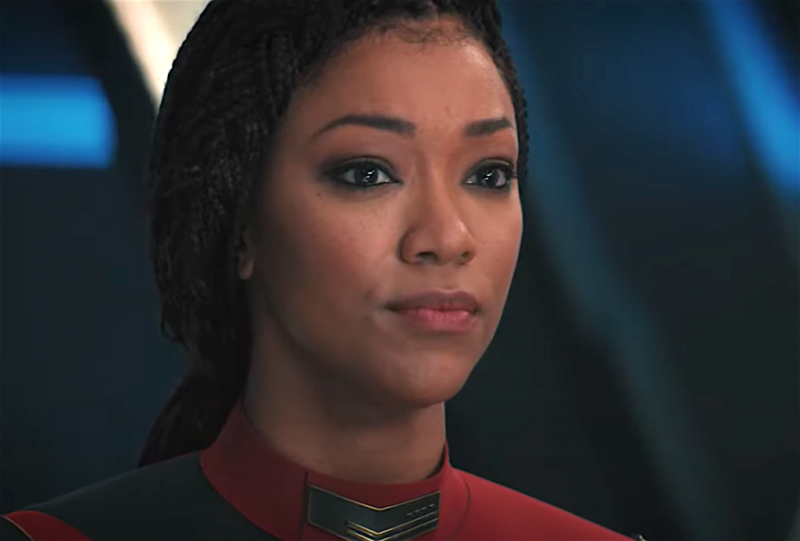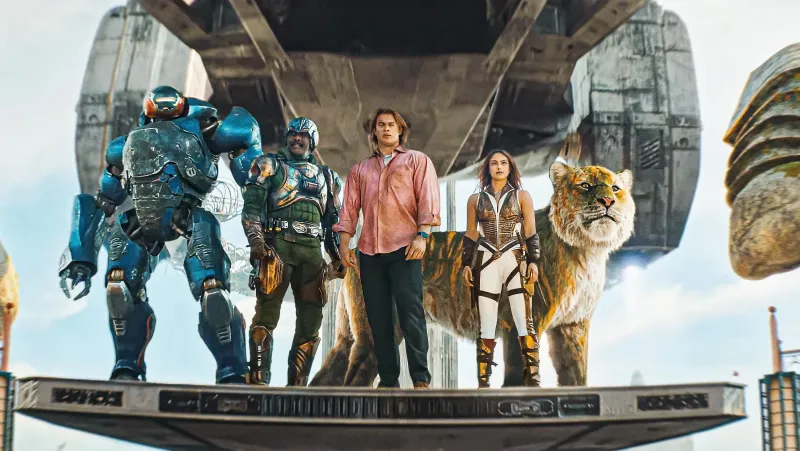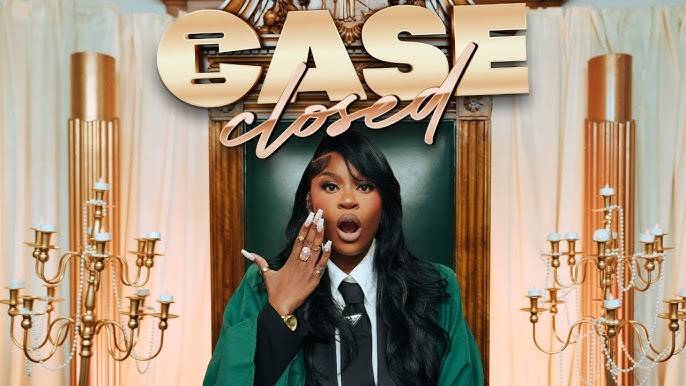The title is a historical reference to Julius Caesar's crossing of the Rubicon river in Ancient Rome, against the wishes of the Roman senate. "Crossing the Rubicon" is now an idiomatic way of saying that a situation has reached the point of no return. It's a phrase that might be applied to "Star Trek: Discovery" as a whole since the show has now aired nine of the thirteen episodes in its fourth season and is in the home stretch for its finale next month.
Not to worry: "Discovery" has already been renewed for a fifth season, so the adventures of Captain Michael Burnham
Saru (Doug Jones) takes on the audience's perspective, as he walks through the sliding doors into Burnham's quarters and she shows him an encrypted message that Book (David Ajala) has sent her. In the message, Book refers to the lives lost because of the DMA, a "dark matter anomaly" that stretches across five light-years and that the crew of the Discovery has been dealing with this season.
Book seems prepared to take whatever measures necessary to stop the DMA. He tells Burnham, "We just can't afford to wait. I love you, Michael. I wish there was a way to find a middle ground on this, but I just don't see it, I'm sorry. Goodbye."
That feels like a pretty definitive goodbye. Is this the end for Burnham and Book? You'll have to tune into the show to find out.
In its third season, "Star Trek: Discovery" jumped ahead 900 years into the future, so that it is now far removed from other shows on the "Star Trek" timeline. In a video on StarTrek.com, Martin-Green discussed the state of the Federation and Starfleet Academy in this far-flung future — and how they are now in the process of rebuilding. While filming season 4, "Discovery" utilized some innovative new Holodeck-like technology, and its season 5 renewal will enable it to continue pushing the envelope.




